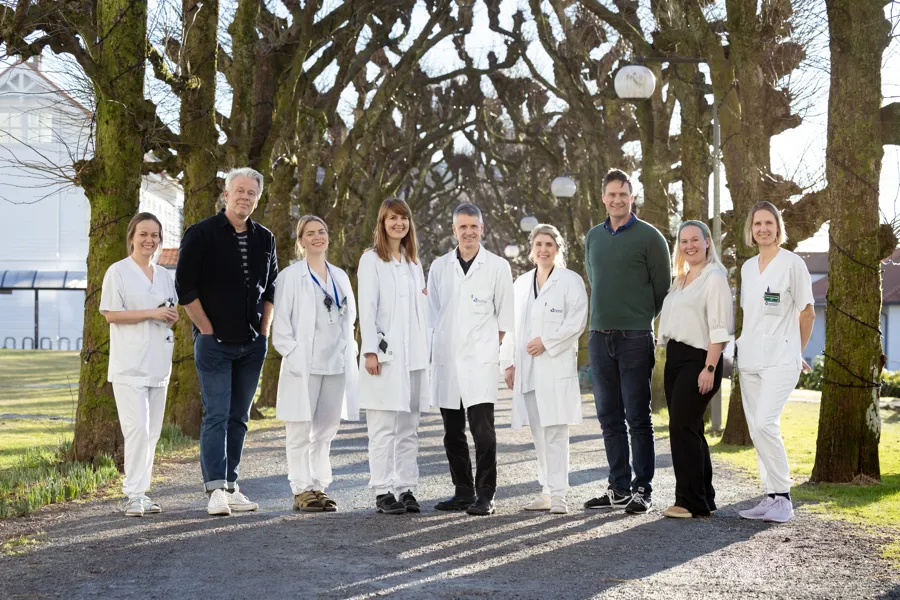Dementia research
Funding for large Alzheimer's trial testing vitamin B3
The National Programme for Clinical Treatment Research in the Specialist Health Services (KLINBEFORSK) recently awarded NOK 25 million to a double-blinded trial investigating novel Alzheimer's disease therapy, involving patients with early Alzheimer's dementia from across Norway. This is a study in the Neuro-SysMed dementia node, with Kristoffer Haugarvoll as principal investigator.

Photo: Neuro-SysMed, Eivind Senneset.
More than 100,000 people are living with dementia in Norway today, and this number is expected to more than double by 2050. Old age is the most significant risk factor for dementia, and we are living longer than ever before. Alzheimer's disease is the most common form of dementia (about 60% of all cases) and already the most expensive disease for the Norwegian healthcare system. 80% of these costs are associated with institutionalization in nursing homes. The burden on Alzheimer’s patients and their relatives will increase dramatically in the years to come, as there is currently no cure. Developing new treatment for the disease is therefore critical both for the individual person affected and for society at large.
Can vitamin B3 influence dementia?
The study will be a double-blinded trial aimed at determining whether a high dose of vitamin B3, in the form of nicotinamide riboside (vitamin B3/NR), affects the progression of Alzheimer's disease. Studies suggest that vitamin B3/NR has a beneficial effect on various brain functions and can make the brain cells more resistant.
300 participants across Norway
In this study, participants with early-stage Alzheimer's disease will be randomly selected for oral administration of either a placebo (sugar pill) or a high dose of vitamin B3/NR. In addition to clinical examinations, blood samples and imaging scans will be performed to study the effect of vitamin B3/NR. The study will last for 2 years for each participant with continuous follow-up. Approximately 300 patients with early Alzheimer's disease will be included in the study.
“This is very encouraging funding, giving us the opportunity to try a new treatment for Alzheimer's disease across the entire country. Such a trial is the only way to know whether the treatment is beneficial for patients and their families,” says principal investigator Kristoffer Haugarvoll.
We look forward to exciting results from the dementia node!